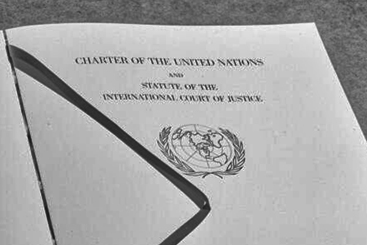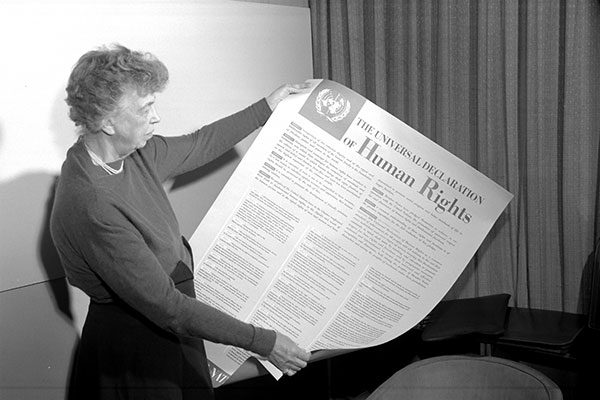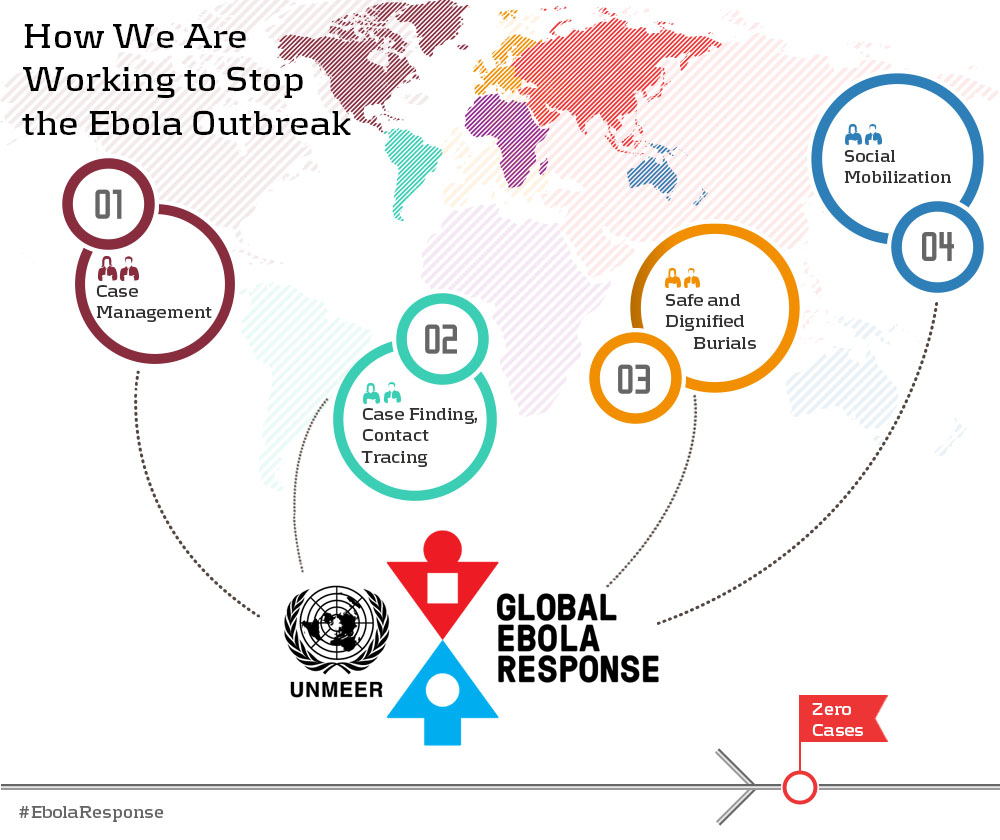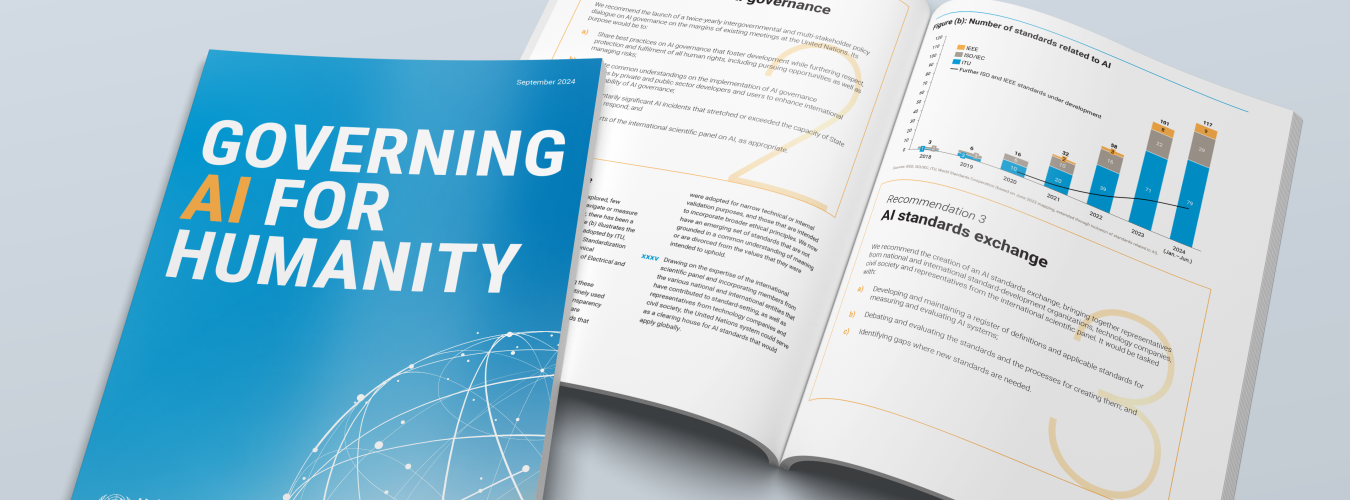The United Nations at 80
Building our future together


Improving lives around the world
By promoting peace, human rights and social progress, including access to healthcare and education, the United Nations has improved the lives of people around the world, creating better living standards for all.
Eight decades later, one can draw a direct line between the creation of the United Nations and the prevention of a third world war."


The UN is indispensable to world peace, justice and equality
- The UN currently deploys tens of thousands of peacekeepers across 11 operations to help countries navigate the difficult path from conflict to peace.
- It has facilitated the adoption of nearly 30 disarmament treaties and ensured the destruction of over 55 million landmines.
The UN remains the essential, one-of-a-kind meeting ground to advance peace, sustainable development and human rights.
It works to help countries end the horrors of conflict to forge sustainable peace.
The UN stands up for justice and respect for human rights. It documents human rights violations worldwide, advocates for robust human rights protections, promotes compliance with international laws and standards, and supports governments in their reform efforts through work in over 90 countries.
What is the true measure of UN Peacekeeping's success?
More about the UN's work on Peace and Security

The UN contributes to global prosperity and sustainability
- The UN assists and protects more than 100 million people every year through humanitarian programmes.
- The UN has the legitimacy, knowledge, skills and logistical capacity to deliver in ways no other organization can.
Together with its specialized agencies it tackles poverty, hunger and disease and provides humanitarian relief in emergencies and crises.
Over the last eight decades, UN health agencies have vastly improved child and maternal mortality, saved millions of lives with immunization, and prevented and controlled the spread of deadly diseases like malaria, tuberculosis and HIV/AIDS.
It supports countries in developing their economic and social resources, while setting standards for sustainability.
What it will take to achieve the SDGs?
Learn about the Sustainable Development Goals
The UN needs to adapt
New challenges
Eighty years after its founding, the United Nations faces new challenges.
The climate crisis is raging, inequalities are growing, and poverty is on the rise.
Terrorism and the nuclear threat persist, and new threats have emerged as artificial intelligence becomes ubiquitous, rushing ahead of regulation.
Our Common Agenda
Starting with the UN's 75th anniversary, Member States pledged to strengthen global governance for present and future generations.
In September 2021, the Secretary-General shared his recommendations to respond to current and future challenges his report, Our Common Agenda, a wake-up call to speed up the implementation of the Sustainable Development Goals and propel the commitments contained in the UN75 Declaration.
UN 2.0
Guided by the Secretary-General's "Our Common Agenda" report, which calls for stronger global governance, multilateral cooperation, and institutional reforms, The UN 2.0 process is a modernization initiative aimed at transforming the United Nations to be more agile, data-driven, and digitally innovative, aligning with 21st-century challenges.
UN80 Initiative
In March 2025, the Secretary-General launched the UN80 Initiative to transform how the UN works - identifying efficiencies, reviewing how mandates are implemented, and examining potential structural changes and programme realignment within the United Nations system.
It's time for a New Agenda for Peace
What is the Pact for the Future?
Multilateralism: how international treaties are made
More in the Global Issue: Multilateral System
Exhibit: 80 Multilateral Agreements that Shaped our World
Member States agree to strengthen multilateralism
Summit of the Future
In September 2024, at the Summit of the Future the members of the United Nations recommitted to facing these challenges together, by signing on to the Pact for the Future.
Pact for the Future
The Pact aims to strengthen global cooperation for the 21st century and rebuild trust in multilateralism, the UN, and the Security Council.
Provisions include advancing coordination with regional organizations and ensuring the full participation of women, youth and marginalized groups in peace processes.
It reaffirms commitment to abide by international law and settle disputes through dialogue and it reinforces the need to uphold all human rights.
SDG Stimulus
But it goes further – it recognizes that we must address the root causes of conflict and tensions through sustainable development. The Pact includes support for an SDG Stimulus to help developing countries to invest in their people and tackle key challenges, like moving towards a future anchored in renewable energy.
Global Digital Compact
It also contains a Global Digital Compact that calls for an AI governance body, which gives developing countries a seat at the table.
World leaders must now turn these agreements into tangible strategies and actions that make a real difference for people's lives.
Major meetings in 2025
In 2025 these major conferences present opportunities to advance the UN's vital work.

(9 June - 13 June)
The third UN Ocean Conference aims to accelerate action to conserve and sustainably use the world's ocean, which covers over 70% of the Earth's surface, regulates major environmental balances, and provides vast resources and biodiversity.
Photo: ©Unsplash/Naja Bertolt Jensen

(30 June – 3 July)
The fourth International Conference on Financing for Development aims to be a key moment to close the SDG financing gap including by advancing the SDG stimulus.
Photo: ©UN DESA

(4–6 November)
The second World Summit for Social Development aims to refocus action on the central pledge of the 2030 Agenda: that no one will be left behind, grounded in equity, social justice and non-discrimination.
Photo: ©Shutterstock/CatherineLProd

(10-21 November)
The UNFCCC COP 30 will emphasize the need to mobilize financing to support developing countries in transitioning to greener economies, adapting to worsening climate impacts, and dealing with losses and damages caused by climate change.
Photo: ©Adobe Stock/Zhu Difeng












